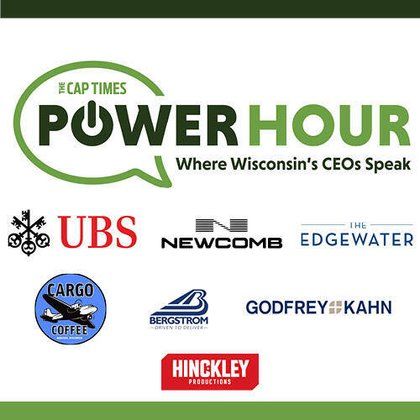By Tom Still
MADISON, Wis. – Brad Bodden is one of the co-managers for Wisconsin Investment Partners, an angel network that has been putting money, expertise and sweat equity into young tech-based companies for nearly 24 years. It’s institutional experience that offers a long view of what it takes to expand Wisconsin’s early stage economy – and why patience is a virtue that eventually pays off.
As the state budget debate unfolds in the Wisconsin Legislature, Bodden’s view along with those of similar veteran investors deserves to be heard.
Lawmakers are weighing the merits of a proposal to create a $75 million “Wisconsin Investment Fund” to be matched by private investors on at least a 2-to-1 basis over time. Other states have taken similar paths to help build their early stage economies, notably Illinois, Indiana and Michigan.
Wisconsin dipped its toes into the water in the mid-2010s with a $25 million investment in what it now called the Badger Fund of Funds, but the time has come for a bolder approach that should involve more one-time money and fewer regulatory strings to encourage private co-investment.
In an interview for “WisBusiness.com: The Show,” Bodden talked about why the $75 million proposal makes sense for lawmakers in both parties to embrace.
“Really, what you’re doing is investing in the state economy,” Bodden said, by creating jobs through new companies that will have reason to stay in Wisconsin versus being lured to other states where more capital is available.
Wisconsin Investment Partners is one of the leading angel networks in the state, as well as the Midwest. Its members have invested more than $50 million in 93 companies over time, with 50 of those companies still active and valued at a collective $5 billion. They have created about 2,100 jobs.
There have been 13 WIP “exits,” meaning sales, mergers or initial public offerings, which is how investors get returns on their money. Another 30 companies have gone under, which is an unavoidable part of the early stage game.
While there is some general economic uncertainty in Wisconsin and elsewhere, WIP is fielding an increasing number of requests for funding. Bodden said a “ten-fold” jump in funding requests is due to the maturing of the state’s early stage foundation, which includes many avenues for companies to get a start but not enough money to see them all the way to success.
“We invest in about five companies per year,” Bodden said. “If we add just a few more investment dollars,” that total will grow and it will “revolutionize our (Wisconsin) economy” over time.
Time is the key word. Lawmakers considering the fund of funds proposal should know new companies take time to grow and not all succeed. Those that make it big are job and wealth creators, as many tech-based companies in Wisconsin already are doing.
Despite some record investment years of late, Wisconsin is still not keeping up with the regional “Joneses.” Illinois and Michigan are two leading examples, with the Illinois Growth and Innovation Fund being a $1 billion catalyst over time. Similarly sized states such as Indiana are also forging ahead. The Next Level Fund is a public-private effort in Indiana seeded by a $250-million state commitment.
Wisconsin is home to about 50 angel networks, angel funds, venture funds and corporate venture funds, but they’re not large by national standards. In fact, Wisconsin only hosts about one-third of 1% of the nation’s early stage capital under management despite having nearly 2% of the nation’s population.
The state is increasingly showing it has the talent, technology and company creation skills to compete, but it won’t make a long-term difference unless there is more homegrown angel and venture capital. Priming the pump through the $75 million fund of funds would bring more capital off the sidelines in Wisconsin while spurring more out-of-state investment, as well.
There are veteran investors such as Bodden and the members of WIP who can leverage a state investment over time with their own risk capital. What ideally needs to happen next is for the Legislature to put its faith in those business people who have shown success over time.
Still is president of the Wisconsin Technology Council. He can be reached at tstill@wisconsintechnologycouncil.com.





